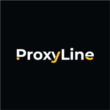Proxy Servers: What You Need to Know in 2025
The Transformation of Digital Networks
In 2025, digital networks are changing rapidly: cloud solutions are replacing local services, and hybrid schemes featuring server proxies and mobile solutions are being adopted in workflows across the board. Companies are switching to cloud tools for rapid scaling, managing distributed teams, and reducing infrastructure costs.
Mobile traffic is growing: every third session passes through a smartphone or IoT device. This requires mobile solutions to be adapted for business needs—access control, traffic filtering, and activity auditing. New data protection standards are pushing companies to implement comprehensive approaches: Zero Trust, SASE platforms, and strict security policies to meet international requirements.

The practical effect is strengthened management tools: automation using AI, integration with monitoring and IAM, and updated security protocols. Even small organizations now gain access to enterprise-grade functionality without extra costs.
Proxy Servers: Modern Capabilities
Today, a proxy server is not just a “bridge” between the user and the internet. Its advantages include:
- intelligent data stream management,
- smart content filtering,
- automatic IP rotation for stable performance during heavy requests or multi-regional multi-accounting,
- built-in support for new standards (TLS 1.3, IPv6).
AI modules analyze anomalies and prevent data leaks before information is transmitted. For marketing and traffic arbitrage, external content filtering tools have become a foundation for search engine analysis and launching ads in new regions.
Expanding proxy functionality for business needs allows you to:
- set schedules for IP changes (IP rotation),
- integrate anti-bot mechanisms,
- establish access control at the application and employee level.
Innovative approaches combine several protection types: Zero Trust Proxy and centralized logging for maximum security.
Innovative Security Technologies
In 2025, rotating solutions and automation address the tightening of anti-bot systems by major platforms. Rotating proxies change addresses «on the fly,» lowering the risk of blocks and providing information anonymity for parsing or marketing tasks. But IP rotation alone is not enough—complex user behavior scenarios are key to masking.
Zero Trust Proxies are being integrated even in medium-sized companies: every request is checked, which protects not only from external threats but also from insider risks. The widespread shift to IPv6 offers an unlimited pool of addresses—crucial for the growing number of IoT devices and minimizing IP collisions.
Integration with SASE solutions simplifies security for remote workplaces: all employee traffic is centrally filtered through a cloud perimeter with antivirus and DLP.
Business and Everyday Use Cases
Modern server proxies allow comprehensive employee control: restricting access to work resources and analyzing traffic. Residential proxies are irreplaceable when real home addresses are needed—for competitor price parsing, bypassing search engine restrictions, or running regional ad campaigns.
Mobile proxies are necessary for testing mobile apps or checking website performance from different countries—they emulate connections with telecom operators’ SIM cards. Such solutions are in high demand among traffic arbitrage specialists and digital marketers.
Business analytics uses innovative tools to collect big data without the risk of being blocked for suspicious scripts. Integration with anti-detect browsers helps overcome even sophisticated target site firewalls—entirely legal if access policies are set up correctly.
Comparison of Proxy Types
| Criteria | Server-based | Residential | Mobile |
|---|---|---|---|
| Speed | High | Medium | Medium/Low |
| Anonymity | Basic | Enhanced | Maximum |
| Cost | Low | Medium/High | Highest |
| Security | Requires improvement | Depends on the provider | Consistently high |
| Protocols | HTTP/SOCKS5/IPv6 | HTTP/SOCKS5/partial IPv6 | HTTP/SOCKS5 |
| Integration | API/SDK, SIEM | API, often VPN | Limited options |
| Main Advantages | Price/scalability | Excellent masking | Legitimacy/uniqueness |
| Disadvantages | Easily banned | Difficult to legalize | Expensive/unstable |
| Recommended Use | Mass parsing | Marketing/A/B testing | Mobile tests/arbitrage |
Modern Risks and Challenges
The private proxy market is growing, and high-quality IPs are getting more expensive each month. Major services are rolling out advanced anti-bot systems: browser fingerprinting, user behavior analysis, and request delay tracking. Entire address ranges are blocked more often, so it’s crucial to choose the right service type and regularly refresh your pool through IP rotation.
Free proxies are a direct data leak risk: many public solutions capture or sell traffic to third parties. New log storage laws require you to only use solutions that guarantee transparent data handling—otherwise, you risk fines or blocking.
Legal requirements are getting stricter: you need to legally purchase proxies from reliable vendors, store access logs according to your country’s laws (for example, under GDPR), and implement automatic deletion of outdated data.
Compliance and Legal Nuances
Every company must consider regulatory requirements when using anonymization tools. In many countries, public services require mandatory licensing; special attention is paid to ensuring residential proxies are not part of botnets or violating the rights of device/IP owners.
Log storage is becoming the standard for the corporate segment; it is important to protect access logs from attacks—the best strategy is to automate deletion after the retention period and encrypt all events.
When using VPNs or extensions, keep in mind: responsibility for bypassing restrictions on forbidden content lies with the end user. Administrative or criminal penalties may apply for violating personal data laws.
Privacy requires awareness. Complying with laws protects both business and professionals from blocks and reputational losses.
Practical Implementation Recommendations
Choose service type based on task: mass parsing—fast server-based solutions with IP rotation; sensitive ads or local SERP analysis—residential or mobile addresses (consider speed limits and cost).
Save time configuring mobile solutions with automatic authorization policies: use multi-factor authentication and IP whitelisting for your internal infrastructure. Update server software, encrypt traffic channels (TLS 1.3/SOCKS5), especially when handling customer personal data.
With compliance (GDPR and local regulations) in mind, set up specialized log storage. Automation will help avoid errors in confidential data protection. Integrate enterprise solutions with SIEM security systems for timely suspicious activity alerts.
Minimize risks:
- Do not use free proxies outside of work tasks.
- For sensitive processes, purchase only private proxies from trusted vendors like —this resource lets you buy proxies with support.
- Test integration before scaling up.
- Keep up with market changes and apply the latest anti-bot measures: IP rotation, behavior emulation, browser fingerprint protection.
FAQ
Can free proxies be used for business. Free solutions are not suitable for business: they often result in data leaks and loss of control over company traffic.
How do you choose the right type. Start from your task: for mass parsing—a server solution with rotation; for marketing—residential; for mobile app testing—a mobile option.
Is it legal to use residential solutions. In most cases, yes, if you buy from licensed providers; using botnet proxies can lead to criminal liability.
What does multi-layer authentication provide. It reduces the risk of unauthorized access even if a single protection layer, such as a password, is compromised.
How can you secure a corporate network for remote work. Use Zero Trust Proxies and SASE cloud filters; SIEM integration enables early incident detection.
What should you do if an entire IP pool is blocked. Enable IP rotation or change your connection type—behavior emulation sometimes helps as well.
Which VPN works best with modern solutions. VPNs are compatible with most tools—as long as they support modern encryption protocols and fit your corporate security policy.
How are mobile solutions better than residential. They’re more legitimate for platforms, ideal for live testing ads and apps, but also more expensive.
Do you always need to store logs. For corporate use and under Western laws (GDPR)—yes; individual users should consider local regulations.
Where can you buy a reliable solution. One of the popular choices among professionals is the service, which lets you purchase quality private addresses for any task.
Smart selection of internet traffic tools is the key to business stability amidst constant changes in security technology by September 2025. Use modern legal solutions, stay on top of anti-bot trends—and your access will always be fast, secure, and convenient!
We recommend
- Proxy auto-issue
- Quality and prompt technical support 24/7
- Refund within 24h after purchase
- Selecting the optimal tariff and GEO for different tasks
- Affiliate program
- Convenient order payment system
- No
- Automatic address issuance
- Round-the-clock technical support
- API
- Refunds within 24 hours
- Affiliate Program
- Choice of payment options
- Price
- Wide selection of GEOs
- Proxies are not designed to work with bookmakers
- Proxies don't work with Steam
- Restrictions on access to prohibited sites



